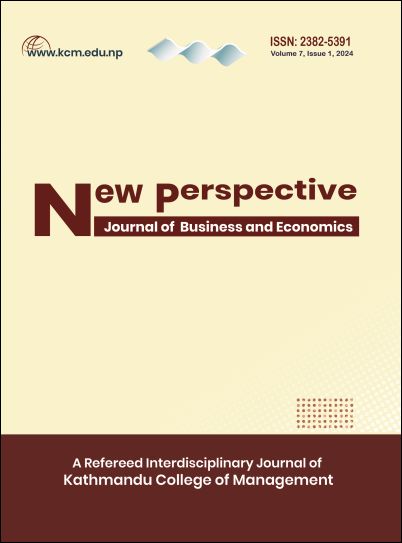Factors Influencing Attitude towards Adaptation of AI among Business Students
DOI:
https://doi.org/10.3126/npjbe.v7i1.70020Keywords:
business students, education, artificial-intelligence, linear regressionAbstract
This study examines the attitudes of business students in the Kathmandu Valley towards the adaptation of Artificial Intelligence (AI). A sample of 185 respondents participated in the study. Data analysis included descriptive statistics, correlation, ANOVA, and regression analysis. The research focused on business education due to the critical importance of skills such as critical thinking, research proficiency, and effective communication. The study assessed five factors influencing student attitudes towards AI adaptation: exposure to AI, trust in AI technology, awareness and knowledge of AI, behavioral intentions towards AI use, and personal experiences with AI. The findings confirm a positive relationship between business students’ attitudes toward using AI and the identified influencing factors. The study suggests conducting future research through longitudinal studies to track attitude changes after students enter the workforce. It also recommends expanding the participant pool to include diverse disciplines and universities across Nepal for better generalizability. Additionally, exploring how negative AI experiences impact attitudes, addressing selection bias through varied data collection methods, and assessing AI's effects on psychomotor and critical thinking skills are advised.
Downloads
Downloads
Published
How to Cite
Issue
Section
License

This work is licensed under a Creative Commons Attribution-NonCommercial 4.0 International License.




